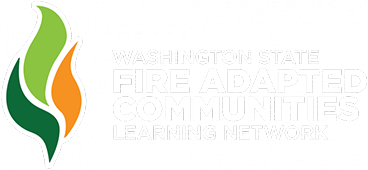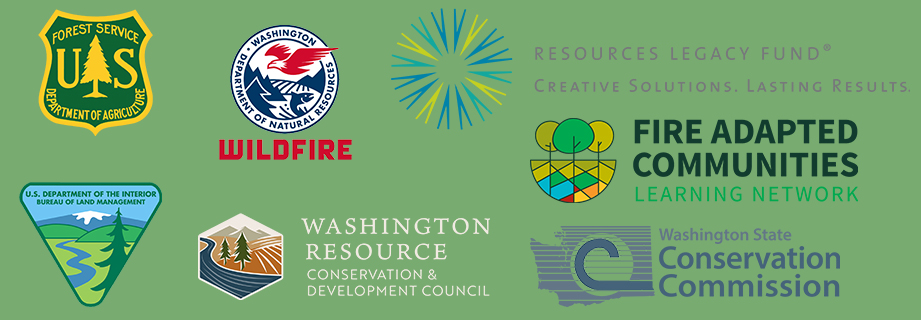There are multiple roles played in support of a Fire Adapted Community (FAC). A FAC has active leaders that understand the risk their community faces from wildfire and takes actions to reduce that risk. It is great to be experienced in one of the roles, but some exposure to a different role – such as incident response – can be very valuable to understand the challenge of being fire adapted “during” a fire.
For somebody who has spent the last 11 years building a Firewise Community’s effort in my county, training others across the state in delivering the Firewise program, developing Community Wildfire Protection Plans, and serving on wildfire prevention teams, you would think I would have at some point been exposed to the detailed process and structure of the incident command system, but somehow it eluded me until recently.
As part of a prerequisite for a training I wanted to attend, I was required to take and pass the Incident Command System (ICS) 100 & 200 level classes online through the National Fire Academy. Each class was slated to take approximately 4 hours of time, so my immediate reaction to discovering I had to spend a minimum of 8 hours doing this was “UGH!” Despite feeling dismay at the time commitment, I was driven by a curiosity of this well-established system that everyone around me seemed to be familiar with and understand, but that I felt like an outsider to.
So, I did it. And it was well worth the 8 hours-plus I put into it; and not just because it allowed me to apply for training.
Here are some highlights of what I learned in these two classes:
- An understanding of the history and structure of the ICS (Did you know the ICS was developed in the 70s in response to a series of catastrophic wildfires in California? Neither did I!)
- Terms/vocabulary used in the system
- Different levels of response types depending on incident complexity
- The tasks associated with each position in the system and how they interact with each other
- How ICS is set up to allow for adapting to changing complexities during an incident
For those of you out there that might deal with wildfire or any other natural or human-caused disasters on the periphery like I do, having a basic understanding of the structure of managing incidents like these will allow you to better communicate with folks on the line when you need information, understand what response to incidents entails, and recognize ways or opportunities to tie in with folks during or after incidents in the most effective manner. And, if nothing else, when your colleagues are discussing “Type 1 Teams” and “Span of Control”, you won’t sit there wondering silently to yourself “What kind of secret code talk is this?!” Instead you’ll be able to have an intelligent conversation with your colleagues.
These online classes can be accessed by going to the National Fire Academy Online Training Page where you can sign up as an online student and access the course catalog. There are multitudes of classes to choose from, and the ICS classes go beyond just 100 and 200 level if you choose to take your learning further. These classes are FREE. How agencies and organizations respond to emergency incidents doesn’t have to be and shouldn’t be a mystery to those living and working around these events. Take it from this ICS rookie; it’s worth the time and energy to add this to your knowledge base. And you’ll even get an official certificate to show off when you’re done!





